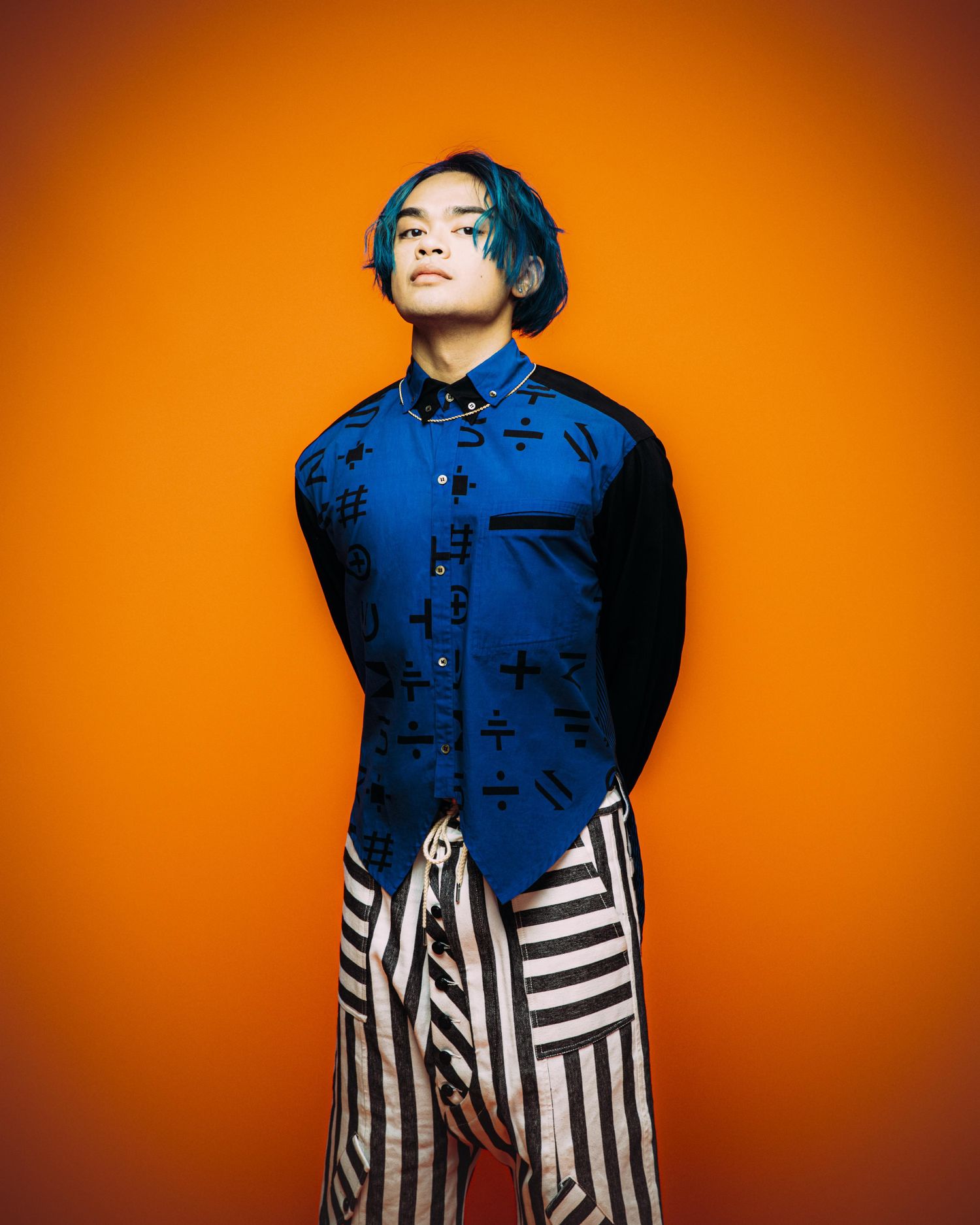34Views
5 dope AAPI artists reminding us to stay strong for MHAM
May is Mental Health Awareness Month (MHAM) and we have every reason to celebrate. It’s not shameful to show your vulnerability or admit your struggles; we are all going through something different. Since May is also AAPI Heritage Month, we proudly combine the two themes together to highlight AAPI artists making a difference.
It’s a difficult time of year, we know. Finals, graduation, job hunting, moving… everything clumps up at the same time. However, if you ever feel overwhelmed and frustrated in your situation, don’t give in easily or let your anxiety break you down.

Instead, on this Mental Health Awareness Month, really take the time to understand yourself. What gets you into your happy place? For many, it is music.
In light of our mission to support mental health awareness and the AAPI community, we have gathered five AAPI artists who remind us of staying strong in their music.
Nora Lum, aka Awkwafina
We have known Awkwafina as Goh Peik Lin in Crazy Rich Asians and Billi Wang in The Farewell. However, besides her booming acting career, she is also a talented comedian, writer, and musician.
Awkwafina first rose to prominence in 2012 when her rap song “My Vag” went viral YouTube. The song was a response to Mickey Avalon’s song “My Dick.”
Afterward, Awkwafina also recorded a few hits such as “NYC Bitche$” and “Green Tea.” “Green Tea” is a song that challenges Asian/American women stereotypes and discusses the objectification and oppression towards Asian women in a satirical tone.
In Bad Rap, a 2016 documentary, Awkwafina shares her experiences as being a marginalized hip-hop artist who is Asian American and woman. Knowing the obstacles and challenges that Asian American women have been facing in society, Awkwafina is determined to defy stereotypes through her music.
Her outspoken comments on the female genitalia in her lyrics, for example, transform the ‘P word’ from a negative taboo to an empowering symbol that hopefully helps Asian women to embrace their feminine power and reclaim their autonomy. Awkwafina is truly one of the greatest AAPI (and worldwide) artists alive right now.
Jonathan Edgar Park, aka Dumbfoundead

Growing up, rapper and actor Dumbfoundead had quite a diasporic childhood. He was born in Buenos Aires, Argentina to South Korean immigrants. When he was three years old, he and his family came to the U.S. by crossing the Mexico-United States border. They later settled in Koreatown, California.
In Dumbfoundead’s music, his family’s migratory history are important in developing his musical identity. As one of the most prominent Asian American rappers in the U.S, he is known for his socially conscious lyrics. Dumbfoundead also invests comprehensive thinking in the names of his music.
His 2017 label BORN CTZN, for example, translates a will to belong to a country, like America. His album Foreigner, which was launched in the same year, expresses his experience of being ‘the other one’ in both his native country and adopted country.
Besides his active efforts in reinventing the representation of the Asian American identity in the public, he is also an activist in social issues. During Covid-19, he has provided great support for workers in the restaurant industry. Dumbfoundead is one of the most inspiring artists we can look to during AAPI Heritage Month.
Shawn Serrano, aka Shawn Wasabi

Hailing from Salinas, California, Shawn Wasabi is a Filipino-American record producer who has been making music since 2013. His song Marble Soda, which was released in 2015, immediately hit 1m views within 24 hours.
“I feel like there is a mixture of support and loneliness in entertainment. There isn’t really anyone to share this feeling with. People tend to put others into boxes without even realizing, and I encourage everyone to be aware of your biases.”
Shawn Wasabi for Vogue.
Growing up in an Asian American household, he has learnt that success doesn’t come easily, and changes don’t simply happen. Choosing to become a musician rather than a doctor, for SW, was a risky decision at first. It was tough, especially Asians are often so underrepresented in the entertainment industry. His achievements and impact nowadays, nonetheless, have proved that he made the right decision.
As a member of the AAPI community, SW encourages people to reach out and have conversations with each other and with people of different communities around them to fight against anti-Asian hate and violence together.
Mike Shinoda

Shinoda is an American musician, record producer, and graphic designer. He is best known for his role as the co-founder of the band Linkin Park, one of the best-selling bands in the 21st century.
Although born to a Japanese-American father, Shinoda’s Asian-ness in his identity was often not completely seen or detected right by people around him. As he says in an interview with Vogue, “Growing up, people always got my ethnicity confused. My dad, my brother, and I got mistaken for Mexican, Native American, Chinese, Filipino, and Inuit.”
The incarceration experiences in the Shinoda family’s history have been important influences on his journey of musical composition. He dedicated a song called Kenji from his 2005 album The Rising Tied to his family’s internment memories and marginalized racial identity in America.
“Whenever we’re facing a widespread crisis—as we were then and as we are now—there is a temptation to cast blame. But maybe the misplaced fear and anger of Japanese Internment can be a reminder that we’ve made some mistakes before, and we don’t need to make them again.”
Mike Shinoda for Vogue.
In a time of crisis like now, Shinoda suggests unity and collaboration in society. Conflict, hatred, frustration, and violence happen, but they should never be legitimized and accepted.
For this Mental Health Awareness Month, tap into Shinoda’s music and words.
Jennifer Lee, aka Tokimonsta

In 2019, Tokimonsta became the first female Asian American producer to receive a Grammy nomination for Best Dance/Electronic Album for her 2017 album Lune Rouge.
As a woman of color in the music production industry, her achievement and life experience are nonetheless inspiring.
Tokimonsta was diagnosed with Moyamoya disease in later 2015. In early 2016, she went through two brain surgeries which later caused her loss of communication and comprehension abilities.
These personal experiences, however, eventually engendered the birth of her Lune Rouge album. The album is about her struggles to regain her language ability during her recovery process and how music has been essential in helping to heal her wounds.
According to the artist, the current anti-Asian hate crimes amid the pandemic have taken a toll on her mental health. It is her responsibility that, as a public figure, to stand up for her community, as she agrees.
However, it has been exhausting to explain something repeatedly to people who just don’t care about what the AAPI community has been going through at the moment.
She suggests people start with the process of unlearning and AAPI members begin with helping people within their own communities. The artist shares platforms that people can utilize to show support for the AAPI community, such as Hate Is A Virus, AAPI Women Lead.
AAPI artists staying strong for a brighter future

There will be light at the end of the tunnel, we shall have faith.
In a time like this, we may feel disconnected, lonely, helpless, vulnerable, hopeless, or disappointed. Never give up, though. You are not alone in this; because what you are experiencing at this moment, other people are probably experiencing something similar somewhere else.
Artists like Awkwafina, Dumbfoundead, Shawn Wasabi, Mike Shinobu, and Tokimonsta (and a lot more out there) opened up about their personal experiences.
They remind us to stay strong and connected in the present crisis. Only when we become mentally strong, that our judgements won’t be clouded by our emotions. Together, we’ll overcome this with great confidence and strength.
Your AAPI Heritage Month/Mental Health Awareness Month playlist:
Some additional resources to support the AAPI community for Mental Health Awareness Month:
Asian Americans Advancing Justice




